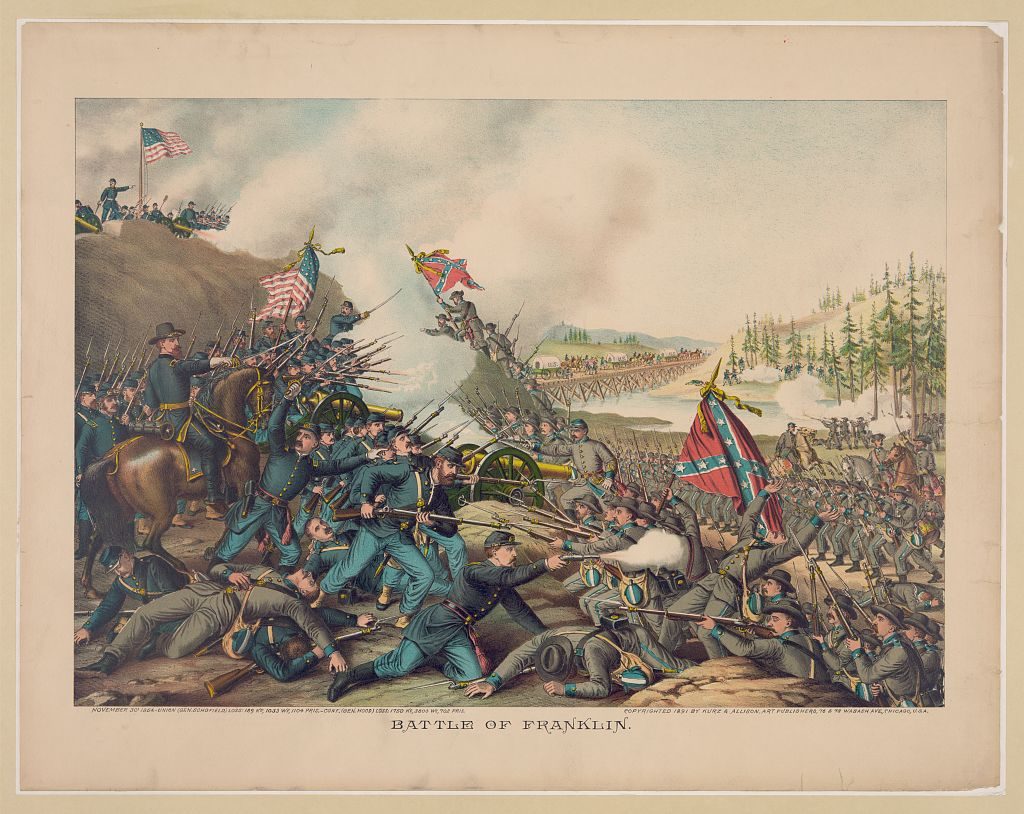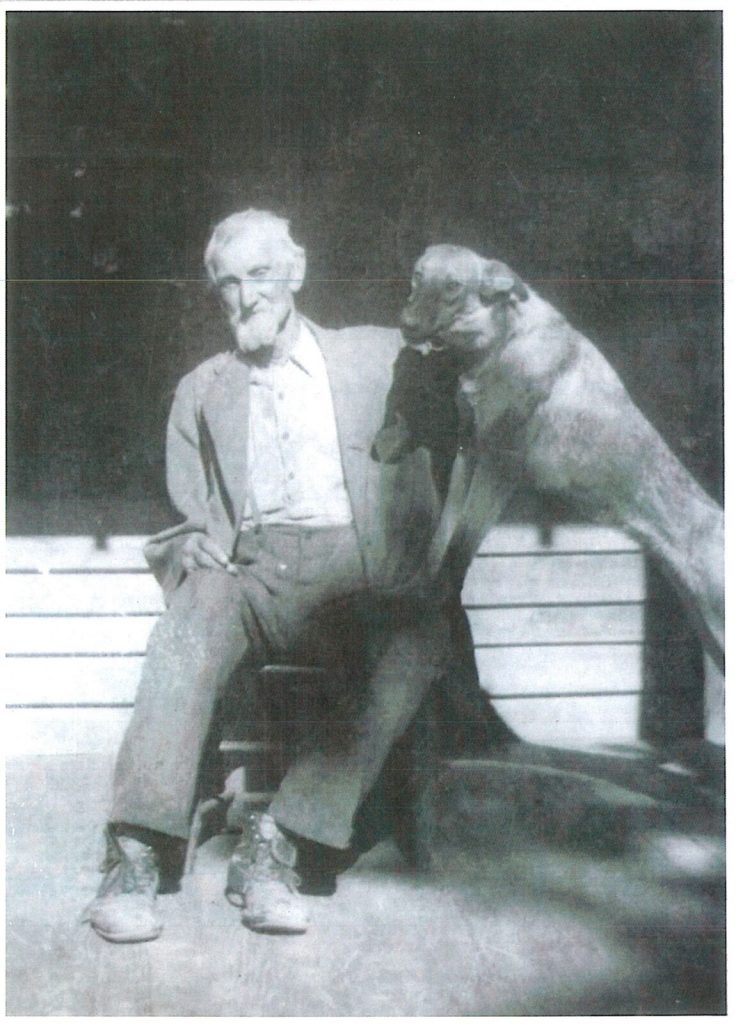Peyton S. Webb was born in Haywood County, Tennessee around 1846. His parents, George and Adeline Webb, worked a farm in the flatlands northeast of Memphis. By 1860, the family had moved south to Winona, Mississippi, where they owned a plantation and nine slaves.
Not much is known about Peyton S. Webb’s time in the Confederate Army. He was only thirteen or fourteen years old when the war started, and he stated later in two pension applications that he enlisted in May 1864 as a private in Company E of the 4th Mississippi Infantry. Webb fought alongside the officers and men of Brig. General Claudius W. Sears’s brigade who broke through the Union line during the Battle of Franklin on November 30, 1864. A Confederate casualty report listed him among those wounded during the battle, but Webb stated on his applications that he was never injured. However, Webb and his service records do agree on how his war ended—he surrendered with his regiment in Blakely, Alabama on April 9, 1865 and spent a short time imprisoned on Ship Island and in Vicksburg, Mississippi.

Webb returned home, bought a farm near Winona, Mississippi, and married his first wife, Elizabeth Hill. Peyton and “Lizzie” had six children during their marriage, but only one (a daughter named Mattie) lived beyond 1900. Lizzie died in 1915 and Peyton remarried and began applying for a Confederate pension from the state a year later.
Webb and his second wife, Mary, were invited to live at the Jefferson Davis Soldier’s Home on May 1, 1929. Apparently it took some convincing on the part of the Beauvoir’s superintendent, Elthanan Tartt, to get the Webbs to accept the offer. Tartt assured them that while “some people who have never been here seem to think the place is a poor house . . . this is a mistake. Every comfort, freedom, and liberty is given [to] the inmate of the home.” Tartt invited the Webbs try living at Beauvoir knowing that if they did not like the place they could return to Winona.

Mr. and Mrs. Webb moved to the Jefferson Davis Soldiers’ Home the next year. Peyton kept in touch with his daughter and grandchildren through the mail. A few days before Christmas 1931, he wrote to Mattie that he was “all rite” and looking forward to the holidays, although he wished he could return home to celebrate. The staff was preparing for “a big Diner” hosted by United Daughters of the Confederacy, and he would try to buy a present the next time he was in Gulfport. He reminded Mattie how much he looked forward to mail, and urged his granddaughter to write him soon.
Peyton Webb lived on and off at Beauvoir during the early 1930s, reminding historians of the fluidity with which residents could enter and leave the home. He was honorably discharged for the final time in 1934, when he returned to Montgomery County until his death four years later. He is buried at the McKenzie Cemetery located between Duck Hill and Winona, Mississippi. Records do not indicate what happened to Mary Webb.
Lead author: Allan Branstiter, Southern Miss history doctoral candidate. Lead researcher: Lindsey Peterson, Southern Miss history doctoral student.
